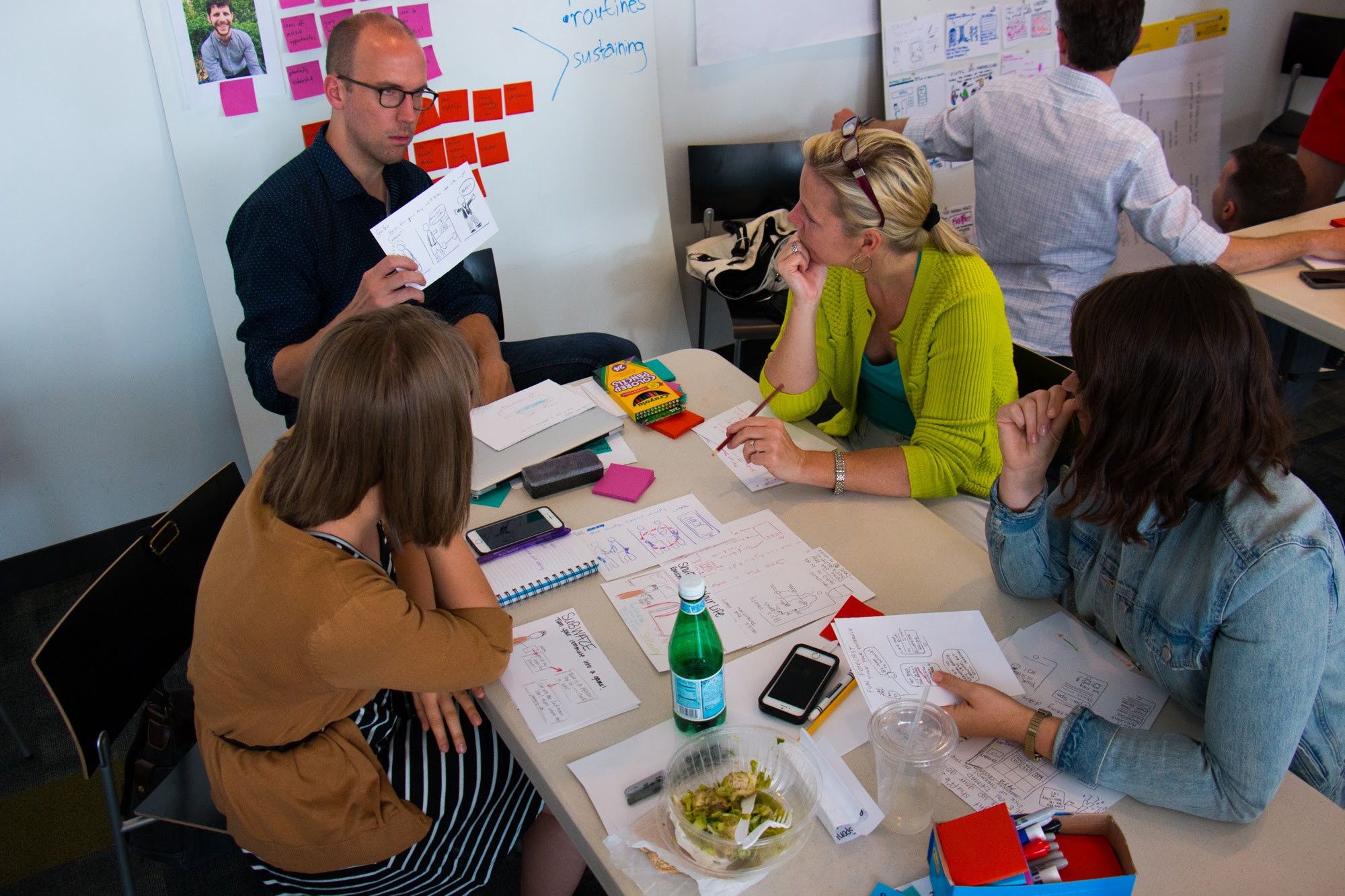What Open Matter will equip you to do.

Top highlight
This spring, we’re launching Open Matter: Local News Bootcamps, in partnership with Google News Lab, News Media Alliance, and 4 Top J. schools. You can read more about the program and opportunities for local, for-profit news organizations here. The live application is here.

Local news companies don’t need false hope. Times are tough, and the trends that have shrunken newsrooms and trust in the media are likely to continue. We’re designing Open Matter bootcamps for local news professionals from editorial, business, and design backgrounds; there’s no room for hype here, not least because newspeople can smell nonsense a mile away.
So let me be perfectly clear: Design Thinking is not a magical savior. Attendees will not leave Open Matter at the end of day three with a perfect plan for how to reinvent their publications and turn community journalism into a thriving industry once more.
This lack of magical promise is a feature, not bug, and this is still an incredibly exciting opportunity. Anyone who would tell you otherwise is kidding themselves or trying to put one over on you. Big innovations that fuel business growth, contrary to popular legend, usually don’t come from a single burst of creativity, a bolt of lightning from the sky. They develop gradually, over time, through lots and lots of experiments, most of them little failures.
That’s the goal of Open Matter. We want to help participating organizations put structure around the new product and service experiments they’re already running. We want to help teams to effectively navigate the hard work that starts when the workshop ends: identifying a problem worth solving in someone else’s life, churning through dozens of prototypes to create a resonant product, and then building a business model and organization around that turns that product into a viable business. We’ll deliver both a process for how to find new business opportunities, as well as a set of mindsets for doggedly pursuing them.
Here’s what Open Matter participants will bring back to work with them:
A gut sense of how to focus on the user, the product, and the business
It is impossible to come up with a great implementation for a new revenue-generating product or service on the first try. The goal of design thinking is to instead take a human-centered, prototype-driven approach to discovering what’s desirable to people, what’s feasible to execute, and what will be viable from a business standpoint. By rapidly toggling between those three different lenses, it’s possible to iterate toward a thriving new business.
At Open Matter, we’ll provide exposure to what it feels like to apply each lens individually, how to run experiments in each, how to know when to focus on each one, and how to make hard decisions, quickly. That intuitive sense for how and when to see the world through the eyes of the user, how to prototype everything from a tech stack to an operations manual, and when and how to focus creativity on revenue modeling — that’s what we’ll deliver to Open Matter attendees.
Tools to infuse creativity into the “serious” parts of the business.
Most of us tend to assume that creativity is important for coming up with ideas and interfaces for products, for marketing campaigns, and for content production — but not when making technical development decisions or when building the business systems around those ideas.
This assumption is flat-out wrong. Creative businesses are creative at business. There’s good reason for this — unless you have fun and play with how the business can work, what part of the value chain to monetize, which customers to serve, even what to measure, you’re inevitably just choosing to go with what someone else decided was the way to do things decades or even centuries ago. We’ll share and provide training in methods that make it easy to play with business factors just as we play with content or design.
Frameworks for creating a real sense of team, the only thing that matters
Trying to create game-changing businesses in an industry under threat isn’t an easy job. Actually, let me restate that: it’s an insanely difficult job, and it’s not one anybody can do on their own. Consequently, people burn out really fast in the job. It’s easy for things to get tense quickly, for tempers to flare. For people to start going through the motions. It’s only possible to survive with a team that’s designed to survive the journey.
That’s why we actually mix up our participants into new teams from across multiple news organizations: it’s easier to try out new ways of collaborating and engaging on a team when you’re out of your status quo. During the bootcamp, we share and put into practice leading thinking around how to give and receive feedback, how to think about goal-setting, and how to express culture. That can make it easier to get back with your own colleagues and figure out how you want to carry culture forward as you pursue innovation.
Seeing the light beyond the buzz
Open Matter won’t unilaterally transform the local news industry. Design Thinking alone can’t, either. But there’s good news in this story. After the hype, and with commitment, practice, and adaptation, new ideas can be molded to the needs of organizations willing to change, learn and grow. Reading a book or taking a class won’t transform a company. Providing a supportive culture, a shared toolkit, and rewarding people who try new things, whether successful or not, can turn the corner to a more sustainable future for local news. At the end of the day, only you can provide the change this industry and the people it serves so richly need.

